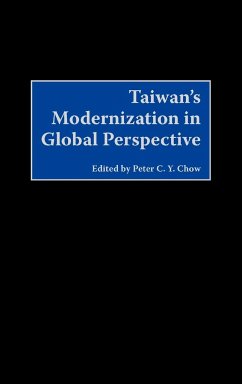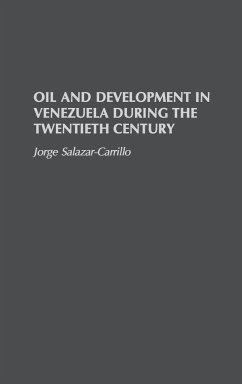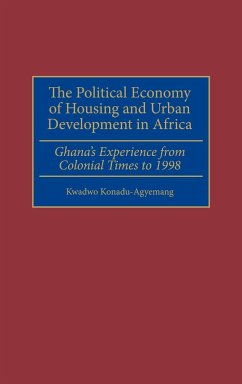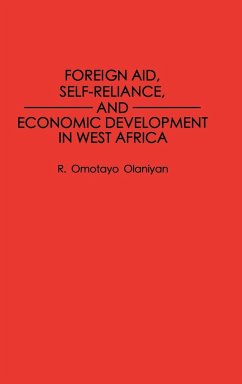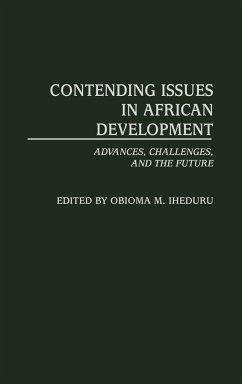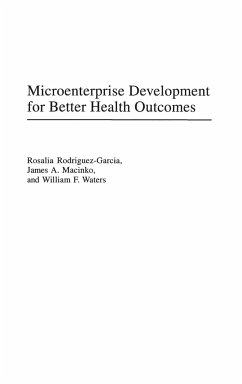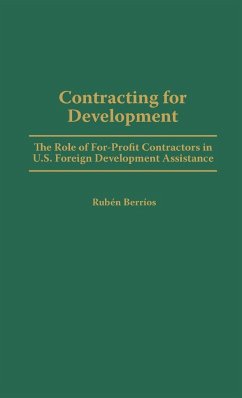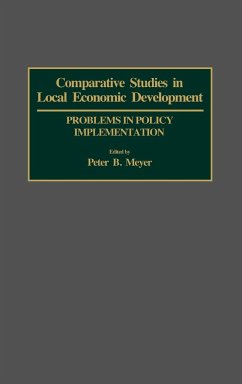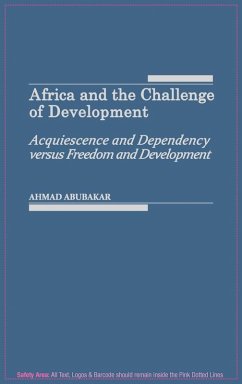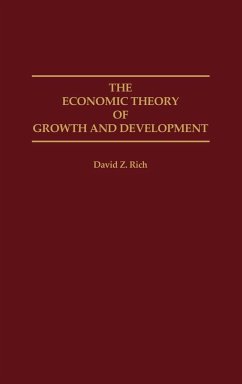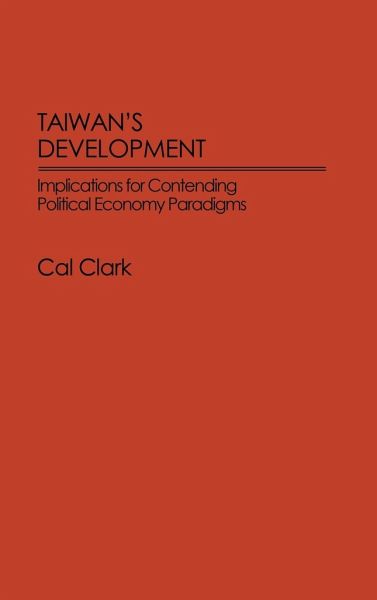
Taiwan's Development
Implications for Contending Political Economy Paradigms
Versandkostenfrei!
Versandfertig in 1-2 Wochen
61,99 €
inkl. MwSt.

PAYBACK Punkte
31 °P sammeln!
Known as the Taiwan Miracle, the Republic of China on Taiwan (R.O.C.) has, over the past thirty-five years, experienced one of the world's highest rates of economic growth. Arguing that major theoretical frameworks for analyzing international political economy are often too simplistic in that they omit key factors or overly generalize from relationships found only in limited situations, Clark uses a detailed case history of the R.O.C. to suggest not only that development and dependency in contemporary society are extremely complex and indeterminate processes, but that development in Taiwan dev...
Known as the Taiwan Miracle, the Republic of China on Taiwan (R.O.C.) has, over the past thirty-five years, experienced one of the world's highest rates of economic growth. Arguing that major theoretical frameworks for analyzing international political economy are often too simplistic in that they omit key factors or overly generalize from relationships found only in limited situations, Clark uses a detailed case history of the R.O.C. to suggest not only that development and dependency in contemporary society are extremely complex and indeterminate processes, but that development in Taiwan deviates significantly from the postulates of the two leading paradigms of international political economy. To go even further, Clark states that Taiwan's economic growth and transformation resulted from its deviation from the normal dependency syndrome. Indeed, a development strategy based on economic flexibility and periodic regime change that has made this flexibility possible are hallmarks in Taiwan's success story. The United States and other advanced industrial economies whose past successes have created economic and political barriers to future adaptation can be better understood in terms of the characteristics of R.O.C.'s development strategy. Part I of the three-part work focuses on environment, first discussing various paradigms and theories about development and then presenting an historical overview of Taiwan. The second part investigates Taiwan's international role, political development, and rapid economic growth. The volume closes with a chapter devoted to the implications of the Taiwan experience and political economy paradigms. Eight figures and thirty-five tables illustrate facets of Taiwan's development, including government structure, indicators of agricultural development, industrialization, educational progress, and export performance, among others. Because of the detailed presentations of political economy theories and their variants, especially in relation to economic and political development in Taiwan, this volume would be an excellent choice for courses in political economy, developing societies, Asian politics, and international relations theory, as well as libraries serving students in these areas.





